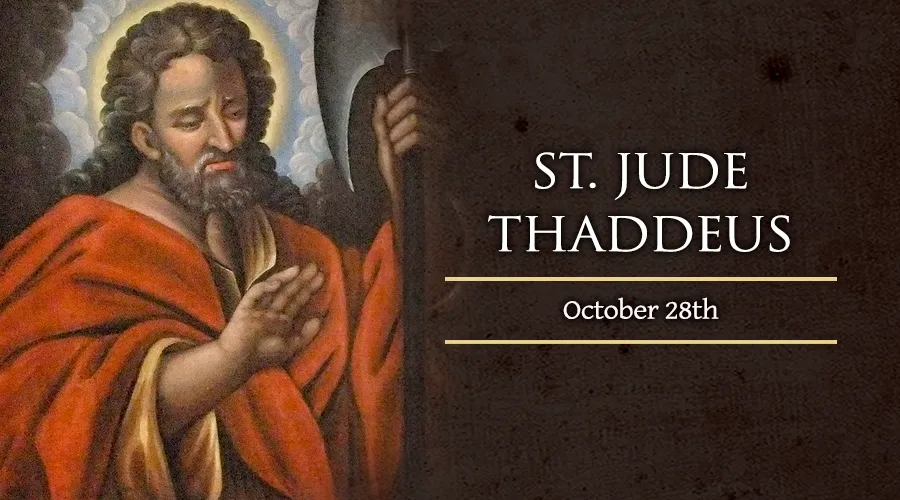Sub-Saharan Africa, 28 October, 2024 / 11:15 am (ACI Africa).
St. Jude, known as Thaddaeus, was a brother of St. James the Lesser, and a relative of Jesus. Ancient writers tell us that he preached the Gospel in Judea, Samaria, Idumaea, Syria, Mesopotamia, and Lybia. According to Eusebius, he returned to Jerusalem in the year 62 and assisted at the election of his brother, St. Simeon, as Bishop of Jerusalem.
He is an author of an epistle (letter) to the Churches of the East, in particular the Jewish converts, directed against the heresies of the Simonians, Nicolaites, and Gnostics. This Apostle is said to have suffered martyrdom in Armenia, which was then subject to Persia. The final conversion of the Armenian nation to Christianity did not take place until the third century A.D.
St. Jude was the one who asked Jesus at the Last Supper why He would not manifest Himself to the whole world after His resurrection. Little else is known of his life, but legend claims that he visited Beirut and Edessa.
He was beaten to death with a club, then beheaded post-mortem in 1st century Persia. His relics reside at Saint Peter's in Rome, at Rheims, and at Toulouse, France.
Saint Jude Thaddeus is not the same person as Judas Iscariot, who betrayed Our Lord and despaired because of his great sin and lack of trust in God's mercy.






